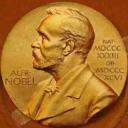Yahoo Answers is shutting down on May 4th, 2021 (Eastern Time) and beginning April 20th, 2021 (Eastern Time) the Yahoo Answers website will be in read-only mode. There will be no changes to other Yahoo properties or services, or your Yahoo account. You can find more information about the Yahoo Answers shutdown and how to download your data on this help page.
Trending News
So I'm basing this question on the idea that the Big Bang wasn't the beginning but rather another?
part in it's evolutionary steps. So if the Big Bang was just a part of the universe's evolutionary steps then before the big bang could time have been slower or faster than now? Also could the universe have been a different shape from what it is now, like closed or open? Also if the "Big Bang" is an evolutionary step then could the heat death or big freeze be it's last step?
PLEASE HELP ANSWER I'M CONFUSED
3 Answers
- Roger KLv 78 years agoFavorite Answer
You may be misunderstanding the big bang theory.
That theory does not address the creation of the universe, it only addresses the expansion of the universe after creation.
However, to what I think is your point... No one knows with absolute certainty. The idea that the universe has gone through some number of expansion/contraction cycles used to be popular, but is now fallen out of favor because there does not seem to be enough mass to stop the expansion, so everything cannot collapse back together. Heat death seems to be the likely end of everything.
The big bang was not a single event, the expansion continues now and will continue for billions of years - at least. So, it is not evolutionary, it is continuous.
We do not know, and cannot know, if there was anything "before" the start of this universe. Time, as we know it, started with the creation of this universe. If there was something before it, we cannot ever detect it because there was no time before the universe started, hence, no way to back track to a point before that.
- RaymondLv 78 years ago
I suspect that you use the phrase "Big Bang" as if it were a single event at the begining of the Observable Universe.
Big Bang is the nickname of the theory that describes the effect of the expansion of space on the energy density (and everything that happens to that energy as it passes certain thresholds). Since the expansion is still going on, we are still in the Big Bang.
The nickname is NOT a good description (for example, it gives the false impression of an explosion) because the nickname was given by an adversary of the theory, at a time when the theory was not readily accepted.
When we use the theory backwards (to try and understand what the past COULD have been like) we find that the further back we go, the higher was the energy density. We reach a point (called the Planck Time) when the density was so high that we do not understand how things work at that and higher densities.
We don't even understand (yet) how time itself could flow at that level of density.
This does not mean that time did not flow (although that is one possible solution); it simply means we don't understand. So sure, it could have been slower, faster, "sideways"... whatever. There is simply no way for us to check. At least, not yet.
So, if I use "Planck Time" instead of your "Big Bang", then it is possible that "before" the Planck Time, the universe could have been... err... something else, including the simple case of a universe that has been expanding eternally, from much higher densities.**
Then, to use your "evolutionary step", at the threshold we call the Planck Time (roughly 13.7 billion years ago), the energy density simply became low enough for us to perceive (and understand) whatever is going on. Anything that happened at higher densities is simply beyond our perception forever (and beyond our comprehension... for now).
When we talk of the portion of the universe that we can perceive (the "thing" that began 13.7 billion years ago and with a Cosmic Microwave Background radiation almost13.7 billion light-years away), we call it the Observable Universe.
All we know (for now) is that the whole universe is much bigger than the Observable Universe.
- 8 years ago
A lot of those questions are questions astro and theoretical physicists are still asking today. One thing a can say however is this (even though it will probably confuse you more). Imagine trying to get a good seat for the big bang, trying to watch it. Well you cant. Not because its physically impossible, but because outside the big bang there is no space, there is no time. The is literally nothing!



